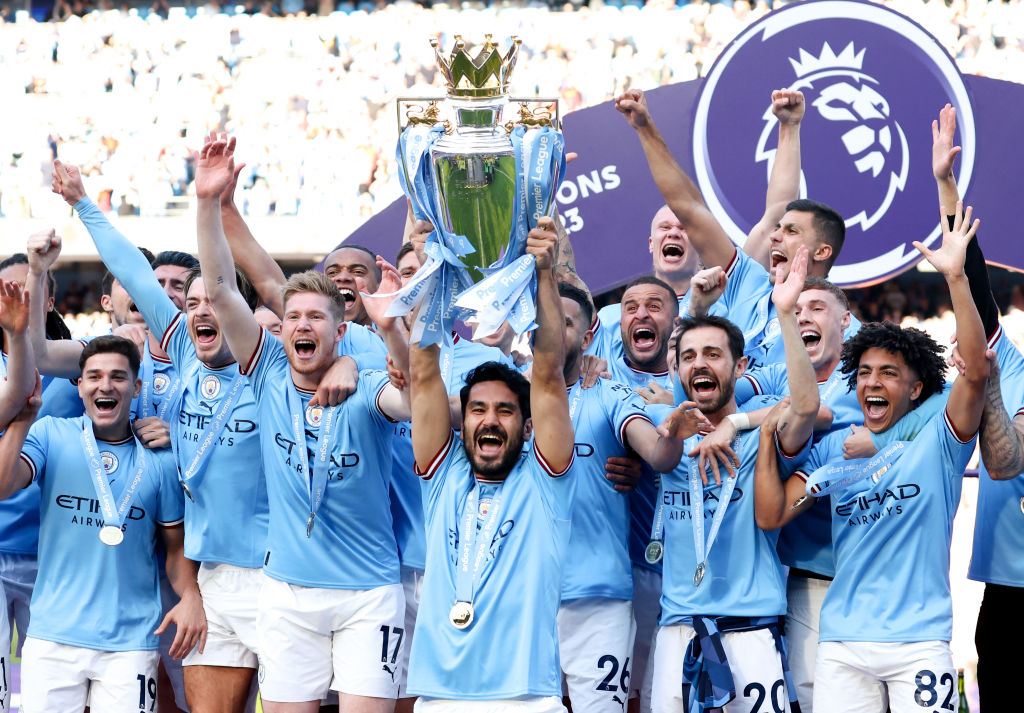From Big Five to Big One: Premier League pulling away from European rivals – Deloitte

European football’s Big Five leagues are steadily being replaced by a Big One as the Premier League pulls away from its rivals, according to research published today.
The total revenue of Premier League clubs reached £5.5bn in 2021-22, around twice as much as its nearest challenger, Spain’s LaLiga, Deloitte’s Annual Review of Football Finance reports.
Revenue growth in the English top division also outpaced the rest of the Big Five, which also includes Germany’s Bundesliga, Serie A in Italy and France’s Ligue 1.
That financial dominance allowed Premier League clubs to smash their own spending records in both the summer 2022 and January 2023 transfer windows.
“There is no doubt that the Premier League is over the hill to a large extent,” Tim Bridge, lead partner for Deloitte’s Sports Business Group, told City A.M.
“It would take something seismic for any of the other leagues to compete in revenue terms but also in popularity terms. The way that the Premier League is consumed around the world compared with other leagues, it is very clearly the market leader.
“The challenge now is what the Premier League does next, because there is a real feeling across the industry that if you can go more direct to the fan, both internationally and domestically, you can have more success. Because in the next 10 years we expect the fan data that clubs and leagues hold will be pivotal in driving the significant growth of the future.
“While never say never, it’s safe to say all those other leagues have got a real challenge on their hands to get anywhere near the Premier League.”
The total European football market grew seven per cent to €29.5bn in 2021-22, a rate outstripped by the Big Five, where revenue was up 10 per cent to €17.2bn and exceeded its pre-Covid peak.
But the Big Five face increasing competition from outside of Europe, following Lionel Messi’s decision to move to US Major League Soccer and a Cristiano Ronaldo-led influx of big-name talent to the lucrative Saudi Pro League.
“It costs more now to acquire an MLS franchise than it does to purchase a Premier League club in the bottom half, so there is a feeling that on certain metrics MLS has already challenged,” Bridge added.
“Admittedly the on-pitch product, international appeal and player development angles still need work, but when you have a closed league system then value is always going to be a driving factor.
“Saudi Arabia is a really interesting one. We’ve seen disruption from the Chinese market and down the years from leagues who’ve acquired players in the twilight of their career for one final payday.
“The difference in Saudi Arabia is that there is an established football system, well-followed clubs, attendances can be impressive, some of the stats around Ronaldo’s move are incredibly impressive and challenge those that we see across the Big Five leagues, so there is a feeling that what’s going on in Saudi is different to what we’ve seen previously.
“Part of the great thing about European football is that the five leagues challenge each other. What is probably lacking in the Middle East and Asia is the strength in depth that would underpin a real challenge.
“With good governance, strong strategic thinking and a real plan that is well thought through, Saudi probably does have a decent chance of at least improving its position, but it is a long way before you challenge those Big Five.”
Meanwhile, Premier League clubs yesterday voted to prohibit fully leveraged takeovers at their Annual General Meeting.
They have also been given greater freedom to sign foreign players with immediate effect after the Home Office made it easier to argue the case if a signing does not meet strict points-based criteria.
